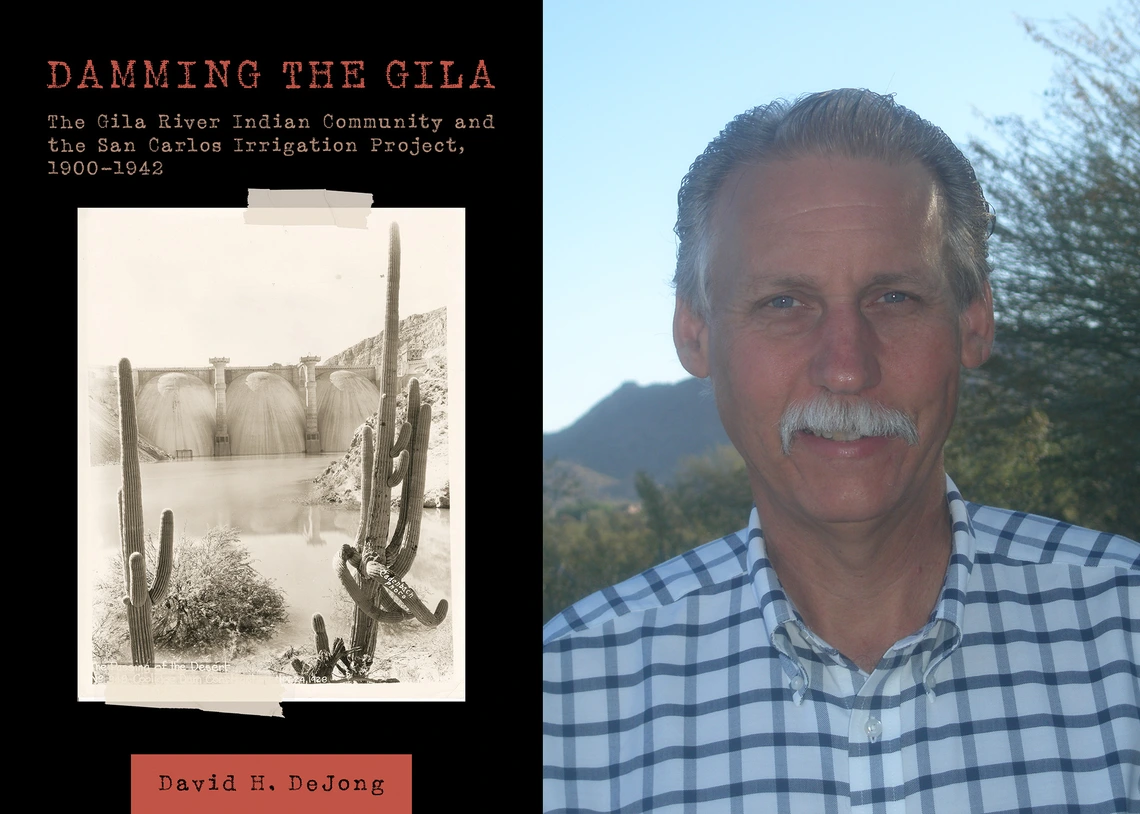
When
Speaker(s)
(Note: Doors open at 12:00 pm and books will be available for purchase. Tickets are limited for in-person attendance; however, if tickets sell out, please consider joining virtually.)
Author David DeJong will give a WRRC Water Webinar presentation about his 2024 released book, Damming the Gila, the third in a five-volume series that focuses on the Gila River Indian Community’s water history. The book examines the failure of the San Carlos Irrigation Project (SCIP) and Gila Decree to restore an agricultural economy on-reservation, even though the SCIP was first and foremost to “benefit ... the Pima Indians of the Gila River Indian Reservation.” Ever the master politician, Carl Hayden sold Congress on the SCIP based on the legal claims of the Community, after which he employed a distributive policy to extend the benefits to non-Indian growers who were politically well-heeled and, as voting constituents, had the ear of Hayden who was not beholden to the Akimel O’otham since they were unenfranchised prior to 1924.
While the Akimel O’otham had been extraordinary growers prior to upstream diversions, they were completely marginalized from the discussions related to the SCIP and the decree. Pinal County and Arizona politicians largely ignored the voice of the Akimel O’otham, with the result that there was never any buy-in for the project by the Community, since they believed it had deprived them of their prior rights. Additionally, the reality that the Akimel O’otham lacked the financial resources to put their water to use left Tribal growers unable to utilize what water existed. In the end, politics, continued upstream diversions, and groundwater pumping deprived the Community of the benefits promised them.
David DeJong grew up in Mesa, Arizona, earning an MA and PhD in American Indian Law and Policy from the U of A. He joined the Pima-Maricopa Irrigation Project in 2001 and in 2006 became the director, overseeing all planning, design, and construction of the Community’s irrigation system under the Arizona Water Settlements Act and Master Repayment Contract. When completed, the project will irrigate 90,000 acres and includes a holistic approach to water management, including managed aquifer recharge and solar over canal. DeJong’s academic work focuses on Indian water rights and agricultural history. He has published ten books, four of which focus on the Community.

